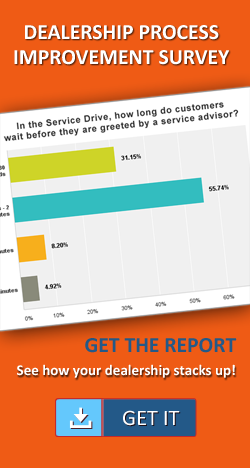RFID IS THE BEST TRACKING OPTION FOR AUTOMOTIVE DEALERSHIPS
- Low cost Vehicle TagsLow cost Vehicle Tags
- Inexpensive InfrastructureInexpensive Infrastructure
- No GPS / Telecom FeesNo GPS / Telecom Fees
- Maintenance FreeMaintenance Free
- Easy to fit on vehicleEasy to fit on vehicle
- Automated TrackingCan you track vehicle movements automatically?Automated Tracking
- Vehicle IdentificationCan you scan a vehicle and identify it on-the-spot?Vehicle Identification
- Bay-Level AccuracyIs it accurate enough to detect a car in a bayBay-Level Accuracy
- Exit / Entry DetectionCan you detect vehicles exiting or entering your lotExit / Entry Detection
- Off-Lot TrackingCan you track vehicles in between lotsOff-Lot Tracking
- Easy Car+Bay AssociationIs it easy to associate a vehicle with a specific bayEasy Car+Bay Association
- Two-way CommunicationCan you update stored vehicle info on the tag?Two-way Communication
- No Processes ChangesRequires minimal changes to existing processesNo Processes Changes
RFID
- Low cost Vehicle Tags
- Inexpensive Infrastructure
- No GPS / Telecom Fees
- Maintenance Free
- Easy to fit on vehicle
- Automated Tracking
- Vehicle Identification
- Bay-Level Accuracy
- Exit / Entry Detection
- Off-Lot Tracking
- Easy Car+Bay Association
- Two-way Communication
- No Processes Changes
GPS
- Low cost Vehicle Tags
- Inexpensive Infrastructure
- No GPS / Telecom Fees
- Maintenance Free
- Easy to fit on vehicle
- Automated Tracking
- Vehicle Identification
- Bay-Level Accuracy
- Exit / Entry Detection
- Off-Lot Tracking
- Easy Car+Bay Association
- Two-way Communication
- No Processes Changes
Wi-Fi
- Low cost Vehicle Tags
- Inexpensive Infrastructure
- No GPS / Telecom Fees
- Maintenance Free
- Easy to fit on vehicle
- Automated Tracking
- Vehicle Identification
- Bay-Level Accuracy
- Exit / Entry Detection
- Off-Lot Tracking
- Easy Car+Bay Association
- Two-way Communication
- No Processes Changes
BlueTooth
- Low cost Vehicle Tags
- Inexpensive Infrastructure
- No GPS / Telecom Fees
- Maintenance Free
- Easy to fit on vehicle
- Automated Tracking
- Vehicle Identification
- Bay-Level Accuracy
- Exit / Entry Detection
- Off-Lot Tracking
- Easy Car+Bay Association
- Two-way Communication
- No Processes Changes
Barcode,
QR or NFC- Low cost Vehicle Tags
- Inexpensive Infrastructure
- No GPS / Telecom Fees
- Maintenance Free
- Easy to fit on vehicle
- Automated Tracking
- Vehicle Identification
- Bay-Level Accuracy
- Exit / Entry Detection
- Off-Lot Tracking
- Easy Car+Bay Association
- Two-way Communication
- No Processes Changes
Fleet, Transportation and Cargo
While GPS is widely used for fleet tracking such as transportation vehicles and cargos as they move around large geographies, it does not have the fidelity to track densely packed vehicles on your lot. Also due to the powering requirements for GPS transmissions, GPS tag batteries only last 6-9 months before requiring replacement.
Indoor Tracking of Mobile Devices
Wi-Fi and Bluetooth are growing in popularity for location tracking in retail, healthcare and some enterprise asset tracking applications. However “active” RF positioning requires a very high density of access points to accurately pinpoint the position of a Wi-Fi or Bluetooth device or a battery-powered active Tag. Due to the powering requirements, active tag batteries only last 6-12 months before requiring replacement.
On-the Spot Identification
While active tracking technologies (GPS, Wi-Fi and Bluetooth) provide real-time tracking, compared with a “last seen” state for RFID, none of them provide a practical, and cost-effective way to scan a vehicle on-the-spot and get immediate verification of it’s ID. This is a fundamental requirement for Dealerships, especially in the Service Drive.
Barcodes, QR Codes and NFC, offer the reverse. They are great for on-the-spot identification which makes them an excellent in retail and marketing applications. However they offer no practical means for location tracking.
Fixed versus Dynamic Content
Unlike Barcode, QR and NFC tags, which cannot be modified once they are created, the data stored in RFID tags can be modified while it is energized. Modern RFID tags can store a quite a lot of data elements, which can be altered in real-time during use. To illustrate the concept. It would be possible update a tag every time the vehicle is serviced, with say a date stamp, and the ID of the person who signed it off, or some other pertinent information.
RFID offers Best of Both Worlds
The beauty of RFID is that can do both automated tracking to detect movements, and manual on-the spot scanning to identify any vehicle. What’s more, RFID tags are passive components which do not require batteries or any maintenance whatsoever. That means they last forever, and since they are so cheap (under a $US), you can simply leave them on the vehicle once it is sold, allowing you to track any customer vehicle returning to your lot.
Imagine being able to recognize a customer you sold a used car to several years ago – even though you haven’t seen them since – when they return to your lot looking for their next vehicle. How would that make them feel about buying from you again?



